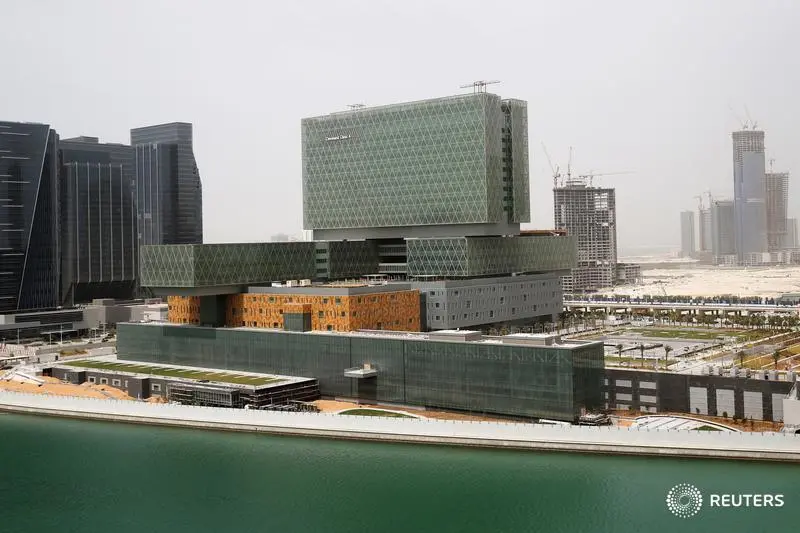PHOTO
Wednesday, Jul 20, 2016
Dubai: Do you need to make a trip to a clinic — or even a speciality day care centre — in your area? Just head for the shopping mall or the community centre.
Access to quality — and instant — health care is coming up quite literally right at one’s doorstep in the UAE as established operators and more recent entrants channel massive investments into new capacities. In the process, health care-related real estate assets have been one of the fastest growing — and high yield generating — categories within the broader property market.
“Market interest has shifted from large multi-speciality hospitals to smaller specialised facilities with an ideal size of between 75-110 beds,” said Tiana Spence, associate director at the consultancy CBRE Middle East. “We are seeing a surge of interest in alternative care sectors including rehabilitation, orthopaedics and diabetes centres.”
For Majid Al Futtaim Healthcare — now in operation for two years — creating those dedicated spaces within the group-owned shopping malls or communities was just a matter of generating the required synergies.
But, according to Omar Al Shunnar, CEO of the health care division, there is more to the process than just putting up the name board at a group-owned property.
“Convenience is a part of the patient journey — that helps us as we roll out our network,” said Al Shunnar. “Being in the malls, we will be able to meet them, engage with them and offering the convenience that can make it easier for them.
“It means having ample parking available, which we already have. Outside, the parking situation can often turn horrible.
“But we are not just embedded in the malls. All our ventures started inside a mall and then expanded outside. We are rolling out a network of centres that are actually embedded within communities.”
This year, Majid Al Futtaim Healthcare will have four new openings, and the plan is to maintain an average of five additions each year from 2017 onwards. The majority of the new locations will be at the malls, including a potential one at the Mall of the Emirates.
“It’s just a matter of time that we will be in all of our malls. It depends on when space is available and how we go about doing it.
“The remit is not just the UAE — we will follow the group’s footprints across all geographies,” said Al Shunnar. “The average size would be 10,000 square feet, though we could have one of around 5,000. It depends on the actual mall.
“We are going at a very rapid pace and it’s organic growth. We have the ability to control the quality of what we provide even as we grow the network.”
For the launch in 2014, Majid Al Futtaim Healthcare had maintained an association with India’s leading hospital operator Fortis. But from 2015, the local entity has been operating on its own.
“We are continuing in self-operating mode … whether we will have any partnerships, that’s something we will explore,” said Al Shunnar.
“It’s on our agenda but not on our immediate radar screens. It could be with another health care operator or a technology provider.”
The ranks of the UAE’s health care operators continue to swell. Recently, Dubai Investments confirmed it will be participating in a new fund that will take stakes in such providers. Details of the proposed investments, done through its subsidiary Al Mal Capital, are expected soon.
Right through the last 24 months, the local health care sector was witness to a slew of big- and mid-sized deals.
“The merger of Al Noor Hospitals Group and South African owned Mediclinic International in February demonstrates international interest and this is something we expect to see increase as the health care market begins to consolidate,” said Spence.
“However, the majority of interest comes from Gulf-based investors. We expect that investment will continue to grow as Islamic funds look to invest in Sharia-compliant assets and in particular, sale and leaseback investments.
“Also, as the health care and education markets continue to grow, we expect to see further consolidation as family businesses align with specialist funds in order to increase market share.”
BOX
People ready to get medical
care in unusual settings
The Middle East populace is not particular about making their routine health checks and meeting other needs at hospitals alone.
According to a recent survey by PwC, 67 per cent of respondents across the Middle East are willing to receive health care in a non-traditional setting — such as at home, over the phone or in a mobile unit.
And if the technology were available, more than half of respondents would choose to have a live consultation with a specialist via their smartphone (62 per cent) or wirelessly check their pacemaker or defibrillator (50 per cent).
The survey also found that consumers are even open to receive a range of treatments in a non-traditional setting, such as a clinical setting in a retail store, pharmacy or retail unit. Over half said they would have a wound or pressure sore treatment, blood test or face-to-face consultation in such a setting. Forty per cent said they were willing to getting more complex services such as an MRI, ultrasound, X-ray or day case procedure there too.
But the region will still need those speciality clinics and secondary and tertiary hospitals. The demographic dictates this to be the case.
Based on current estimates, the Gulf’s ageing population will grow at a faster pace than the overall population growth between 2014 and 2025.
“This is causing an increase in the burden of health care,” said Omar Al Shunnar, CEO of Majid Al Futtaim Healthcare. “The needs are shifting to chronic diseases with cardiovascular recording about a 400 per cent increase between 2014-25, while diabetes’ spike would be 300 per cent.”
The Gulf’s population could grow from 52 million in 2014 to 61 million in 2025.
By Manoj Nair Associate Editor
Gulf News 2016. All rights reserved.





















